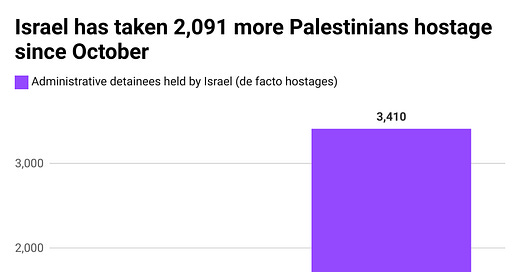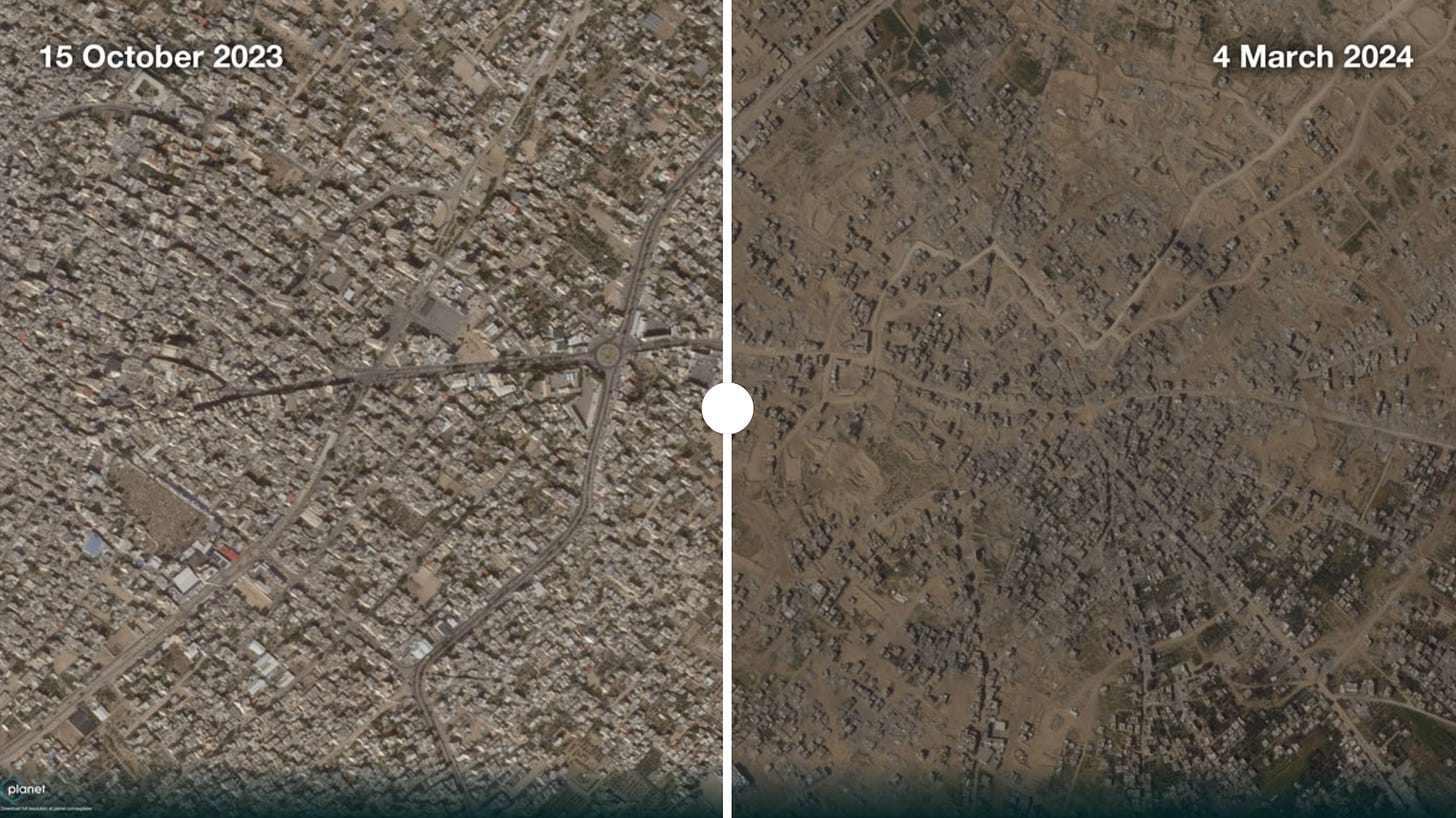*Big thanks to Kheng L. and Gary W. for becoming this newsletter’s latest paid subscribers! Please join Kheng, Gary, and the others listed below who keep Polygraph afloat. In addition to my unrelenting gratitude, you’ll also get exclusive content: My latest VIP newsletter, for example, ranks House Republicans based on their votes on nine military spending-related bills. I’ll be grading House Democrats soon. Don’t miss out:
1. Hostages held by Hamas
Four hostages were freed by Israeli forces on Saturday. Rather than secure their release through a ceasefire and prisoner exchange deal anytime in the last eight months, Israel opted for a rescue mission that killed at least 274 Palestinians and wounded 698. During the operation, Israeli forces bombed a market — during the day, when it was most crowded — in an already-crowded refugee camp. Top European Union diplomat Josep Borrell called it a “massacre.” Here’s how a local resident described it: “People were screaming – young and old, women and men,” he said. “Everyone wanted to flee the place, but the bombing was intense and anyone who moved was at risk of being killed due to the heavy bombardment and gunfire.”
*
Earlier in the week, the Israeli army announced that four hostages were dead. An IDF spokesperson said that based on intelligence, “We estimate that the four of them were killed together in the Khan Younis area several months ago while being held by Hamas.”
Israel was carpet bombing Khan Younis several months ago. From December through the first week of April, Israel attacked the city. By the time Israeli forces withdrew, more than half the city was destroyed. The image below suggests that Israel’s priority was destroying Khan Younis, not rescuing the hostages inside it.
So while the IDF didn’t say how the four captives were killed or who killed them, I’m inclined to believe that Israel killed the Israeli hostages. Another reason: Hamas said in early March that it was able to identify three of seven Israeli hostages killed in an Israeli airstrike. Those three were among the four hostages Israel just pronounced dead.
^Alt text for screen readers: The image on the left provides an aerial view of Khan Younis on October 15, 2023. The image on the right provides the same aerial view of the city, now destroyed, on March 4, 2023. Source: Crisis Group, April 2024.
2. Hostages held by Israel
The Palestinian hostages held in Israel are called administrative detainees. In administrative detention, people are held indefinitely without charge or trial, not knowing if or when they’ll be released — i.e., they’re hostages.
Israel held 1,264 Palestinians hostage in administrative detention before October 7. Now it holds 3,410 Palestinian hostages, based on new data from HaMoked. This is a slight reduction from last month, but the overall number of Israel’s “security prisoners” — of which administrative detainees are a part — is higher (9,112), due to an increase in the number of “unlawful combatants.” (For more on Israel’s policy of mass incarceration, see here.)
^Alt text for screen readers: Israel has taken 2,091 more Palestinians hostage since October. Administrative detainees held by Israel (de facto hostages) in October 2023: 1,319. In June 2024: 3,410. Administrative detainees are held indefinitely without charge or trial. Figures as of June 2024. Data: Israel Prison Service, HaMoked.
SPECIAL THANKS TO: Alan F., Andrew R., Bart B., BeepBoop, Bill S., Byron D., Chris G., David S.,* David V.,* Francis M., Irene B., Gary W., George C., Jerry S., Joseph B., Kheng L., Linda B., Lora L., Marie R., Mark G., Matthew H.,* Megan., Meghan W., Nick B., Omar D.,* Peter M., Philip L., Silversurfer7, Springseep, Theresa A., Themadking724, Tony L., Tony T.
* = founding member





